Aviation gains from exchanges
Updated: 2013-09-26 23:59
By Zhao Lei (China Daily)
|
||||||||
Advancement in technological capability gives China bigger say in cooperation
The Chinese aviation industry has benefited from cooperation with foreign institutes and is willing to deepen international exchanges in research, according to a senior researcher of a State-owned aviation company.
"We have been benefiting from our fruitful cooperation with aviation research institutes in the European Union and Russia, and our cooperative projects focus on civil aviation technologies," said Hua Jun, deputy head of the Chinese Aeronautical Establishment.
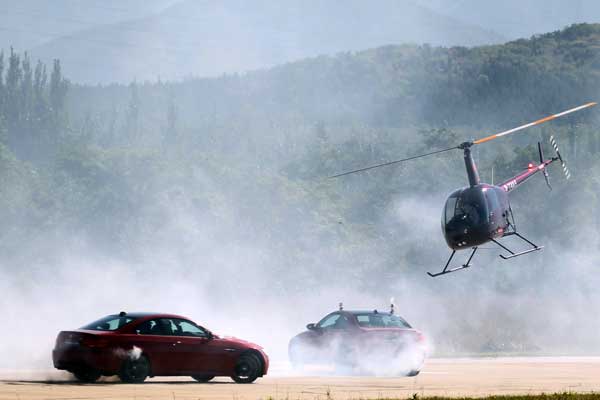 |
|
A helicopter and two cars are featured in a performance during the 15th Aviation Expo/China on Thursday. The expo, which opened in Beijing on Wednesday, will last four days. Zou Hong / China Daily |
Hua made the remarks at the 15th Aviation Expo/China, which opened in Beijing on Wednesday and lasts four days.
"Starting 30 years ago from simple training programs for our researchers, cooperation between us and foreign institutes has evolved to a high level, allowing us to conduct joint research and development projects," he said.
He added that China's rapid development and remarkable advancement in technological capability gives the country a bigger say in such cooperation.
Even in some cutting-edge aeronautical fields such as space shuttle development, Western countries are becoming more flexible and willing to work with China.
"The United States, Europe and Japan are all exploring space shuttle technologies, and some of them have contacted us to inquire whether we can collaborate with them or let them use our facilities to perform tests," Hua said.
The Chinese Aeronautical Establishment, which belongs to the Aviation Industry Corp of China, was founded in the 1960s and has more than 10,000 researchers. It is the largest aviation technology institute in the country.
Hua said the first cooperative project between China and Western nations in aeronautical research was launched in 1980, when Chinese aviation authorities signed an agreement with the German Aerospace Center to send Chinese researchers to study and work in Germany's aviation sector.
Since then, more than 300 Chinese researchers have been involved in the program and many of them have become leaders in Chinese aviation institutes, according to Hua.
The establishment also has cooperation agreements with a host of prominent foreign institutes including the French Aerospace Lab and Russia's Central Aerohydrodynamic Institute.
"It has become a common practice that we use foreign institutes' instruments or facilities to test our designs," Hua said, noting that the establishment recently signed a contract with the National Aerospace Laboratory of the Netherlands and the German-Dutch Wind Tunnels to perform aerodynamic tests using their equipment.
There are three cooperative research projects that are underway and sponsored by authorities in both China and the EU, he said.
Compared with theoretical and technical research, the joint development of aircraft appears to be more tangible.
Avicopter, the only helicopter manufacturer in China and a subsidiary of Aviation Industry Corp of China, is working with Eurocopter, the largest helicopter company in the world in terms of revenue, on the development of the AC352, known as the EC175 by the European company.
The AC352 is the first helicopter cooperative project in which China and a Western nation have shared the same responsibilities and profits, Cai Yi, general manager of Avicopter, said.
He said the Chinese government also has been negotiating cooperation with Russia since 2009 on the development of a helicopter that is capable of lifting heavy loads.
In addition to scientific research and aircraft development, many cooperative projects concentrate on new trends in civil aviation such as green aircraft, noise reduction and alternative fuels, Hua said.
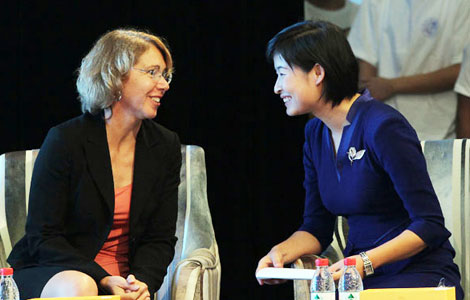
 US astronaut praises China's space program
US astronaut praises China's space program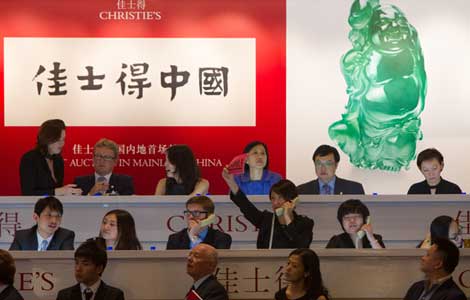
 Christie's holds inaugural auction
Christie's holds inaugural auction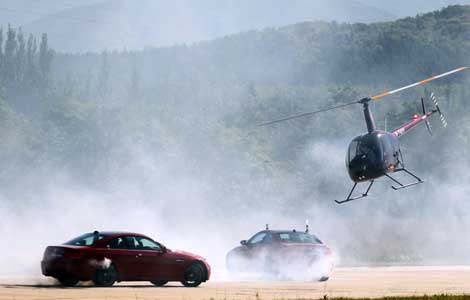
 Aviation gains from exchanges
Aviation gains from exchanges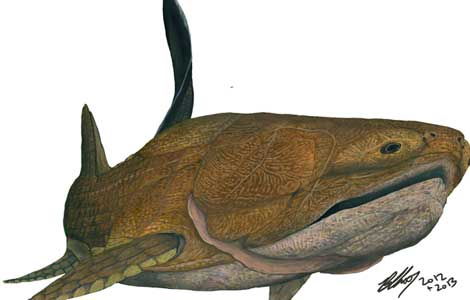
 Early fish ancestor found
Early fish ancestor found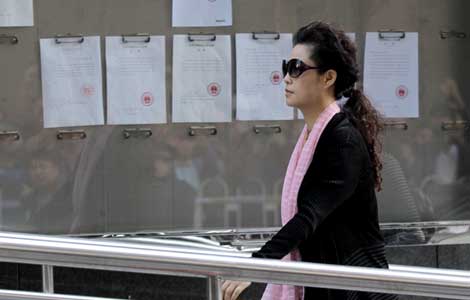
 Singers' son sentenced to 10 years for rape
Singers' son sentenced to 10 years for rape
 Djokovic announces engagement to girlfriend
Djokovic announces engagement to girlfriend
 Taipei, LA and Singapore top travel search growth list
Taipei, LA and Singapore top travel search growth list
 Big cats are part of the family
Big cats are part of the family
Most Viewed
Editor's Picks

|

|

|

|

|

|
Today's Top News
Russia to guard Syria chemical weapon destruction
Interpol issues arrest notice for 'white widow'
US astronaut praises China's space program
Joint talks on trade in services
Philippines-US drill raises concern
Abe blames China for defense spending
Courier reaches for the sky with drone
President Xi touts moral models
US Weekly

|

|





